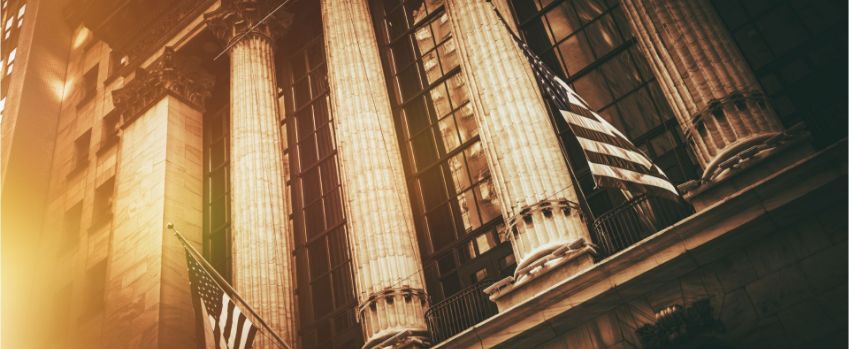In the realm of financial trust, a mere 10 percent of U.S. adults profess high confidence in the nation’s financial institutions, marking a stark descent from the 22 percent reported in the not-so-distant 2020. A recent survey orchestrated by The Associated Press-NORC Center for Public Affairs Research unveils this sobering sentiment, further exacerbated by the recent demise of Silicon Valley Bank.
The survey’s resonance amplifies the disquiet, revealing a prevailing sentiment that the government is slack in its regulatory duties concerning the financial industry. The ghost of the 2008-2009 financial crisis looms large, haunting public perception.
Silicon Valley Bank, once a titan standing as the nation’s 16th-largest, succumbed on March 10, its downfall orchestrated by audacious forays into the bond market. Subsequently, the regulatory guillotine fell on New York’s Signature Bank, entangled in the labyrinth of cryptocurrencies. Across the Atlantic, the beleaguered Credit Suisse sought refuge in a shotgun marriage with UBS, signaling a bid to reinstate global confidence in financial fortitude.
This tumultuous landscape prompts introspection among policymakers, scrutinizing the 2018 legislation that, perhaps recklessly, dismantled stringent regulations born from the aftermath of the financial crisis. The survey unfolds a disquieting narrative: a resounding 56 percent of the populace deems the government’s regulatory endeavors insufficient, while a mere 27 percent consider it judicious and 15 percent decry it as excessive.
The bipartisan hue of concern paints a vivid picture – 63 percent of Democrats and 51 percent of Republicans share the unease regarding the inadequacy of current bank regulations. Philip Metscher, a 53-year-old Marine Corps veteran and Republican residing in Sacramento, articulates a pervasive sentiment: a pervasive lack of faith in both bankers and the regulatory guardians.
The survey’s canvas extends beyond the seismic shifts in confidence. Only 10 percent of Americans extend their trust to the nation’s banking institutions, with 57 percent harboring some confidence and 31 percent standing at the precipice of skepticism. The echoes of the past reverberate; confidence dwindles, a trend discernible since the 2020 AP-NORC poll.
Economic vistas fail to elicit optimism. A mere quarter perceives national economic conditions as favorable, a stark contrast to the three-quarters branding them as poor. A partisan lens further refracts this perception – 43 percent of Democrats laud the economy, whereas a paltry 7 percent of Republicans join the chorus.
Personal financial landscapes paint a nuanced panorama. Approximately half of U.S. adults acknowledge their financial situations as good, a dip from the yesteryears. Democrats, by a margin, hold a rosier view, with 60 percent espousing positivity compared to half of their Republican counterparts. The political crystal ball foretells divergent futures – 38 percent of Democrats anticipate financial improvement, while 22 percent of Republicans cling to the hope.
The specter of economic deterioration looms large, with half of U.S. adults prophesying a worsening economic milieu. Political fault lines emerge starkly – three-quarters of Republicans brace for the storm, while a third of Democrats dismiss it as political weathering.
The inflationary tempest rages, inflicting wounds on American households. U.S. hourly wages, adjusting for inflation, spiral downwards for 23 consecutive months. The anecdotes amplify the disquiet – a paycheck-to-paycheck existence, reminiscent of the inflation-laden 1970s, as voiced by Sacramento resident Philip Metscher.
Federal Reserve’s attempts to quell inflation through benchmark interest rate hikes, though noble, strain the financial fabric. Silicon Valley Bank, ensnared in this intricate dance, stumbled as the value of its bond investments waned under higher rates.
Bryan Martin, a political agnostic from Westfield, New York, dissects the conundrum. “It’s a financial house of cards,” he remarks sagely. The Fed, ensnared in its own Catch-22, raises rates to combat inflation, inadvertently bruising the financial edifice. Banks, he opines, are teetering on the precipice of failure.
Darlene Brady, a retired nurse’s aide from Butler, Pennsylvania, treads cautiously with limited confidence in banks. Yet, she harbors solace in the haven of federal deposit insurance, safeguarding her savings beneath the $250,000 threshold.
In the backdrop of these turbulent financial seas, the poll of 1,081 adults serves as a barometer of collective sentiment, conducted meticulously from March 16-20. The AmeriSpeak Panel, a probability-based cohort, ensures a mosaic reflective of the nation. The statistical dance yields a margin of sampling error, a mere plus or minus 4.0 percentage points.




